Countdown to World Media Freedom Day, May 3
GLOBAL PRESS freedom has fallen to its lowest level in over a decade, according to a Freedom House report released today.
The decline was driven in part by major regression in several Middle Eastern states, including Egypt, Libya, and Jordan; marked setbacks in Turkey, Ukraine, and a number of countries in East Africa; and deterioration in the relatively open media environment of the United States.
Freedom of the Press 2014 found that despite positive developments in a number of countries, most notably in sub-Saharan Africa, setbacks were the dominant trend in every other region. The share of the world's population with media rated ''Free'' remains at just 14 percent, or only one in seven people. Far larger shares live in ''Not Free'' (44 percent) or ''Partly Free'' (42 percent) media environments.
''We see declines in media freedom on a global level, driven by governments' efforts to control the message and punish the messenger,'' said Karin Karlekar, project director of the report. ''In every region of the world last year, we found both governments and private actors attacking reporters, blocking their physical access to newsworthy events, censoring content, and ordering politically motivated firings of journalists.''
''In 2013 we saw more cases of states targeting foreign reporters and media outlets,'' Karlekar added. ''Russian and Chinese authorities declined to renew or threatened to withhold visas for prominent foreign correspondents, but the new Egyptian government went a step further by detaining a number of Al-Jazeera staff on charges of supporting terrorism.''
Key Global Findings:
Of the 197 countries and territories assessed during 2013, a total of 63 (32 percent) were rated Free, 68 (35 percent) were rated Partly Free, and 66 (33 percent) were rated Not Free.
All regions except sub-Saharan Africa, whose average score leveled off, showed declines, with the Middle East and North Africa suffering the worst deterioration.
Triggers for country declines included governments' overt attempts to control the news - whether through the physical harassment of journalists covering protest movements or other sensitive stories, restrictions on foreign reporters, or tightened constraints on online news outlets and social media - as well as the role of owners in shaping media content through directives on coverage or dismissals of outspoken journalists.
Country improvements were largely driven by three factors: a growing ability of private firms to operate television and radio outlets; greater access to a variety of views via online media, social media, and international outlets; and improved respect for legal protections for the press.
China and Russia maintained a tight grip on local media while also attempting to control the more independent views provided either in the blogosphere or by foreign news sources.
The world's eight worst-rated countries remain Belarus, Cuba, Equatorial Guinea, Eritrea, Iran, North Korea, Turkmenistan, and Uzbekistan.
Key Regional Findings:
Americas:
The regional average score worsened to its lowest level in five years, and just 2 percent of the population in Latin America lived in Free media environments. Scores dropped in Honduras, Panama, Suriname, and Venezuela. Paraguay's rating improved to Partly Free. Conditions in the United States deteriorated due primarily to attempts by the government to inhibit reporting on national security issues.
Asia-Pacific:
Only 5 percent of the region's population had access to Free media in 2013. China, rated Not Free, continued to crack down on online speech, particularly on microblogs, and also ramped up pressure on foreign journalists. Press freedom deteriorated in Hong Kong, India, Sri Lanka, Thailand, and several Pacific Island states, including Nauru, which was downgraded to Partly Free. Burma and Nepal registered score improvements.
Eurasia:
The overwhelming majority of people in the region (97 percent) lived in Not Free media environments. Conditions in Russia remained grim, as the RIA Novosti news agency was closed and the government enacted additional legal restrictions on online speech. Ukraine was downgraded to Not Free for 2013 due primarily to attacks on journalists covering the Euromaidan protests, and further erosion took place in Azerbaijan. Positive developments occurred in Kyrgyzstan and Georgia.
Europe:
This region enjoys the highest level of press freedom, but the regional average score registered the second-largest drop worldwide in 2013. The Netherlands, Norway, and Sweden were rated the world's top-performing countries. Significant decline took place in Turkey, which fell into the Not Free category, as well as in Greece, Montenegro, and the United Kingdom. A modest numerical improvement was noted in Italy, which remains Partly Free.
Middle East and North Africa:
Only 2 percent of the region's people lived in Free media environments, while the vast majority, 84 percent, lived in Not Free countries or territories. Backsliding occurred in Libya, which fell back into the Not Free category, and Egypt, where the military-led government limited press freedom. Significant deterioration took place in Jordan and to a lesser extent in Iraq and the United Arab Emirates. Press freedom declined further in Syria, in the midst of an especially brutal civil war that posed enormous dangers to journalists. Improvements took place in Algeria (upgraded to Partly Free), Yemen, the West Bank and Gaza Strip, and Israel (upgraded back to Free).
Sub-Saharan Africa:
The majority of people (56 percent) lived in countries with Partly Free media. Improvements in the legal and economic spheres in 2013 were balanced by declines in the political category. Declines occurred in South Sudan and Zambia (both downgraded to Not Free), the Central African Republic, and several countries in East Africa, including Kenya, Mozambique, Tanzania, and Uganda. West Africa saw a number of improvements, including the upgrade of Cote d'Ivoire to Partly Free and numerical gains in Mali, Senegal, and Togo. Other gains were recorded in the Democratic Republic of Congo, Madagascar, the Seychelles, and Zimbabwe.
Phuketwan is marking the 30-day countdown to the 30th anniversary of the World Media Freedom Day on May 3 with news outlets around the world.
Freedom House is a nonprofit, nonpartisan organisation that supports democratic change, monitors freedom, and advocates for democracy and human rights.

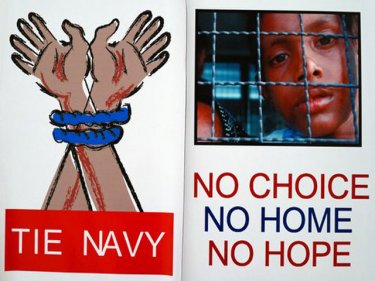

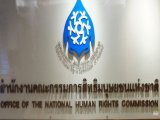

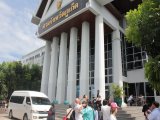
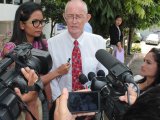
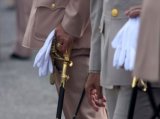

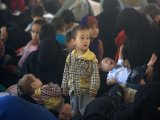




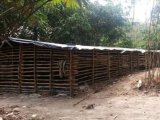



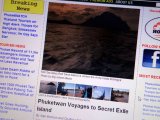
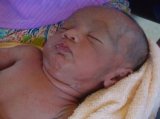

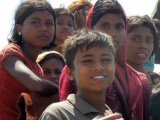
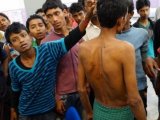
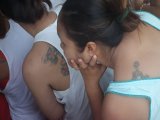

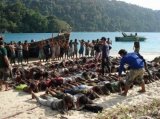
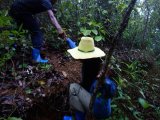

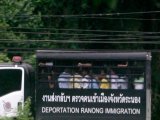
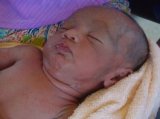
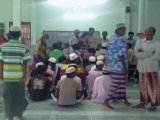
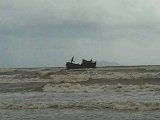
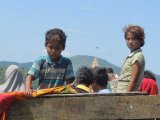
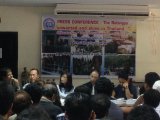
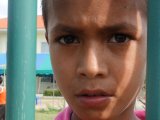
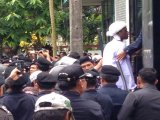
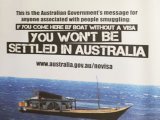
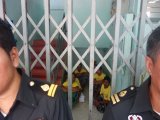
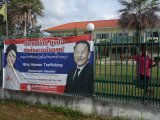
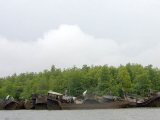
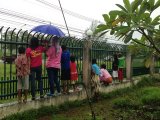
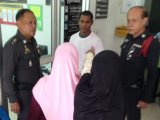

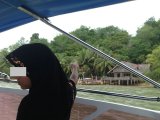

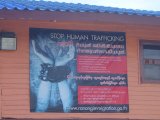
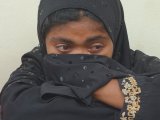
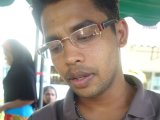
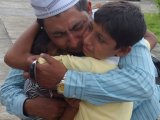

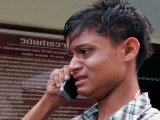

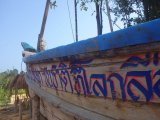
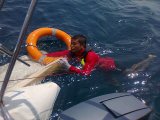
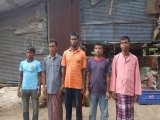
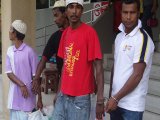

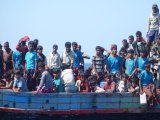
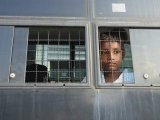
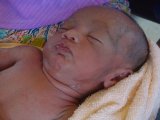
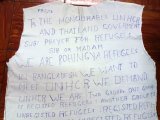
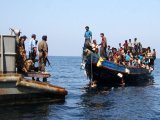

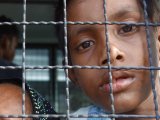

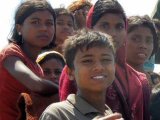
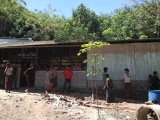

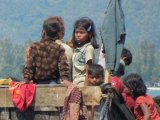
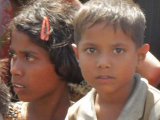
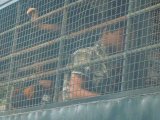
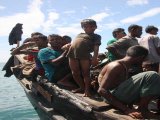
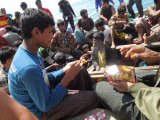



Freedom House originate from the USA and main office is in Washington DC , the report has to be seen in that perspective.....far from a non political tool....and good to see that the press freedom in in Israel is free contrary to the UK that is seen as not free !.
Posted by Sailor on May 1, 2014 22:08
Editor Comment:
So everything that originates in the US is ''a political tool''? I guess that means the UN too, right? How odd, Sailor. Please remove your blinkers.